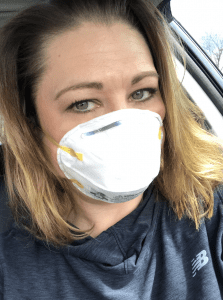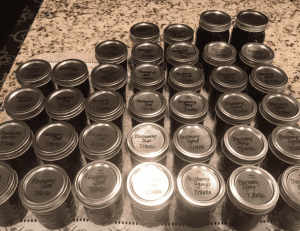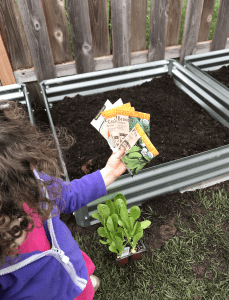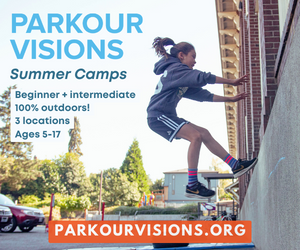In 2009, my husband and I put together emergency “bug out bags” which included flashlights, N95 masks and MRE’s. We created the bags, put them in the garage and more or less forgot about them. Preparing the bags seemed utterly ridiculous until I pulled out those N95 masks during the destructive Eagle Creek fire that scarred the Gorge in May of 2018.
 Preparedness has a bit of a bad name. People often think of “Doomsday Preppers” and the idea that the only preppers are those preparing for the apocalypse or zombies. Most of the preparedness discussions revolve around conspiracy theories.
Preparedness has a bit of a bad name. People often think of “Doomsday Preppers” and the idea that the only preppers are those preparing for the apocalypse or zombies. Most of the preparedness discussions revolve around conspiracy theories.
What I’ve come to realize the last couple of months is that many level-headed preppers quietly exist. The pandemic pushed our family to start taking a serious look at our food, water, medical and personal needs if a real emergency should occur. We do, after all, live in earthquake territory.
To say I’ve turned into a prepper feels like it comes with a stigma, and I’m hesitant to openly discuss it. The CDC has always recommended having about 3-days of food and water on hand yet only 17% of Americans consider themselves prepared for a man-made or natural disaster.
In early March, we had about a week’s worth of food in a general sense, but anything beyond that, we would have been struggling to make a substantial meal. The pandemic pushed me to take a hard look at our preparedness plan. I started to consider what food we would need in an emergency. Being prepared is more of a prudent practice, it’s not paranoia. At least, this is what I tell myself when I inventory my pantry.
What I discovered in the last few months from reading various preparedness articles was there’s a difference between bugging-in and bugging-out. All require different approaches. The emergency kits we put together in 2009 are good for bugging-out but don’t take into account what important items we would need to grab if we had to leave home urgently. In addition, I created them and forgot about them, and it’s important to regularly assess if the items need to be updated.
Preparedness can quickly get overwhelming and doesn’t seem a hot burner issue so most people don’t do anything. As someone that has now started down this road, I can say it’s worth considering the various possibilities in a broad sense and getting your ducks (or canned goods) in a row. It’s like having a will; it helps you sleep better at night knowing you are thinking ahead to economic hardship or a natural event.
I would recommend starting with one method of emergency preparedness. Right now, it seems easiest to consider what an extended stay-home scenario looks like since we’re experiencing it in real time. 
I’ve taken this opportunity to learn to can, to be sure and get my vegetables from more local resources. We are eating more fresh seasonal food that is locally grown, we are examining what spices, canned goods and dry goods we need to keep on hand at all times and are buying 1 or 2 extra of items each week. We are mentally preparing for what may come.
Let me be clear: there is a difference between hoarding and clearing shelves versus buying an extra can of corn or beans. In the preparedness community, the idea is to be ahead of the surge so you aren’t a strain on the system. Nobody can predict what the next wave will be so with every shopping trip, I prepare a little for the future. I inventory my pantry and add an extra can or two of something here or there.  Now is a great time to prepare for an emergency, beyond just the food in your pantry. Creating a communication plan with your family members is a good place to start. Know where to connect and how to communicate if needed during an unexpected event. How would you exit your house and where would you meet if there was a fire or a natural disaster? Determine who is on your contact list and designate someone out of the area to check in with as a point of contact. A good next step is to create a supply kit. Having several days’ worth of food, water, batteries, a radio, toiletries, and a first aid kit for home and ready on the go could save your life one day.
Now is a great time to prepare for an emergency, beyond just the food in your pantry. Creating a communication plan with your family members is a good place to start. Know where to connect and how to communicate if needed during an unexpected event. How would you exit your house and where would you meet if there was a fire or a natural disaster? Determine who is on your contact list and designate someone out of the area to check in with as a point of contact. A good next step is to create a supply kit. Having several days’ worth of food, water, batteries, a radio, toiletries, and a first aid kit for home and ready on the go could save your life one day.
It still feels utterly ridiculous to get ready for an event that may never happen, but I’ve learned life is less stressful when you plan and prepare. Once again, I am grateful we had those bug out bags with masks prepared for an emergency.

















